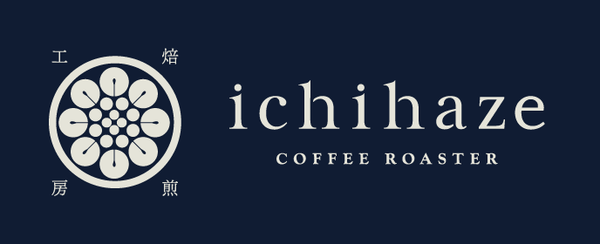Ethiopia - Wako Aba Natural
Ethiopia - Wako Aba Natural
Couldn't load pickup availability
This coffee was produced by Wako Aba, who grows and processes coffee on his 5.5-hectare farm, Bonki Busa. Wako’s farm is located near the woreda (administrative district) of Kochere, in the Gedeo political zone, in Ethiopia’s Southern Nationalities, Nations, and People’s Region. The farm is privately owned and operated by Wako and his family.
Bonki Busa sits at a staggeringly high elevation of 2,200m above sea level. The high elevation of the farm, combined with the region’s cool climate, is ideal for the slow ripening of coffee cherries, leading to denser beans and a sweeter, more complex cup profile. Wako grows coffee as the primary cash crop, alongside other food crops like legumes, grain and bananas. The coffee is intercropped amongst native forest and grows under the shade of Birbira, Wanza, and Acacia trees.
Wako inherited the land from his parents, and has been growing coffee for the last fifteen years. Prior to that, he kept bees and produced honey, which alongside coffee, has been produced in the region for thousands of years. Like many Ethiopian smallholder farmers, Wako uses organic farming practices that rely heavily on the manual labour of him and his family.
ABOUT THE GEDEO ZONE
The Gedeo Zone is located in southwest Ethiopia, in the SNNPR political region, and is named after the Gedeo people. Historically, coffee from Gedeo has been classified both as “Sidama” and “Yirgacheffe,” with the latter being its most famous coffee-growing woreda, and one of the country’s three trademarked regions. With average year round temperatures between 15-18oC and healthy annual rainfalls, Gedeo is well-suited to coffee-growing. Most coffee grown here is part of a family’s ‘coffee garden,’ and is farmed alongside other food crops in environments nearly free of fertilisers and pesticides. These lots grow in iron-rich, acidic soils and receive shade from native trees such as Cordia Africana, Acacia, and Ensete trees.
ABOUT THE SIDAMA COFFEE REGION
Historically, the Sidama coffee region refers to a wide geographical area encompassing much of central-south Ethiopia, that is well known for producing exceptional natural and washed coffees. The region is located in Ethiopia’s South East Coffee Zone, and includes renowned coffee-producing localities such as Yirgacheffe, Kochere, West Arsi, Bensa and Guji. After a 2019 Referendum, some of the territories within the Sidama coffee region formed an autonomous regional state. This coffee region now extends across the states of Sidama, Oromia and the Southern Nations, Nationalities, and People’s Region (SNNPR), three of eleven ethnically-based regional states of Ethiopia.
Coffees that are grown and processed in Sidama showcase an extremely diverse range of flavour profiles, and are noted for their intensely fruit-forward, tea-like, floral and complex character that is sought after worldwide. It is widely accepted that the coffee species, Arabica, originated in the lush forests of southern forests of Ethiopia and hence growing conditions in this area are perfectly suited for producing exquisite coffees.
The Sidama coffee region is named for the Sidama people, a tribe with a long and proud history of coffee production. Coffee has been here for centuries and is an important source of income for rural households, who grow it as the primary cash crop. Family plots are small and intensively farmed with intercropped coffee, food crops like pulses, grain and yams, and other cash crops like khat (similar to tobacco) and Ethiopian banana. Most farms are planted amongst or alongside indigenous forest trees, which provide a thick canopy of shade for the coffee trees. Historically, farmers in this area will use organic farming practices (although it is unlikely to be certified) as there is no ready access to artificial fertilisers or pesticides.
VARIETY
This coffee is a mix of three locally recognised native varieties, Wolisho (or Walichu/Welisho), Dega, and Kurume (Kughumi), and three JARC varieties, 74110, 74112 and 74165.
For many years, most Ethiopian coffees have been described as being a mix of cultivated and wild varieties, referred to as “heirloom varieties.” This is a term that is all-encompassing and used by many actors in the coffee industry to generally categorise Ethiopian coffee varieties that are from native forest origins. Whilst this describes many of the varieties found in Ethiopia, it is also a bit simplistic and does not acknowledge the varieties that are already locally recognised and cultivated, or those that have been specifically developed and widely distributed by the Jimma Agricultural Research Centre (JARC).
Sidama is home to many native or “landrace” varieties that were originally selected from the forest and have been propagated successfully for decades. There are five popular varieties that are named after indigenous trees in the area— Bedessa, Kudhumi, Mique, Sawe and Wolisho. There is little documentation on the history of these varieties, and it is hard to know if they represent a single plant or a wider group of varieties; however, it is widely accepted that they play a major role in the quality and floral flavour profile of the coffee from this region. Along with these, JARC varieties were developed using “mother trees” from Ethiopia’s coffee forests, and are now grown for disease and pest resistance, as well as exceptional cup profile, and are released by number. For example, 74110, 74112 and 74116 are all widely propagated in the Sidama growing region.
We roast on every Wednesday and dispatch on Thursday.
View full details









